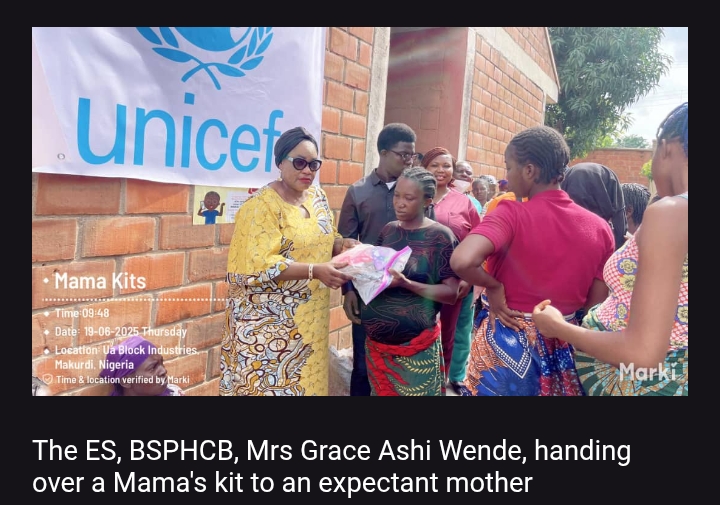670
By Tracy Moses
The Benue State Government, in partnership with the United Nations Children’s Fund (UNICEF), has embarked on an Integrated Supportive Supervision (ISS) exercise across Internally Displaced Persons (IDP) camps in the state. The initiative includes visits to camps accommodating victims of the recent violent herdsmen attack in Yelwata, Guma Local Government Area.
The aim of the supervision is to assess the conditions of the displaced persons and evaluate the quality of services being rendered to them, nensuring the services meet required standards and identifying areas needing further intervention.
During the supervision exercise, officials observed that many of the displaced persons are still battling deep psychological trauma, with several showing signs of severe mental distress due to the horrific experiences they endured during the attacks.
Addressing journalists during the visit to the camp, the Executive Secretary of the Benue State Primary Health Care Board (BSPHCB), Mrs. Grace Ashi Wende, explained that the activities currently being carried out by UNICEF at the International Market Camp build upon its previous humanitarian interventions in the state.
According to her, UNICEF, through the state government, has distributed 80 Mama kits to pregnant women, alongside the provision of ready-to-use therapeutic food for malnourished children in the camps.
“This Integrated Supportive Supervision is part of ongoing monitoring. For a while now, UNICEF has been assisting us in delivering health outreaches to IDPs in different camps. Periodically, we visit to check on the beneficiaries and ensure that the services being offered are of high quality and meet expected standards,” Wende explained.
She continued, “We do this quarterly, and today’s visit is focused on assessing how patients, children, expectant mothers, and even the elderly are being cared for. All medical services, including medications, are provided at no cost. The government is actively supporting this effort. We have drugs and essential medical supplies, and for more serious cases, we refer them to the Teaching Hospital.”
She further noted that other humanitarian organizations such as the World Health Organization (WHO) and the United Nations Population Fund (UNFPA) are also on ground, each contributing their expertise. However, she emphasized that UNICEF is taking the lead in the camp by providing health outreach, nutritional screening, counselling services, therapeutic feeding, and educational support through its “school-on-wheels” initiative for displaced children.
On challenges facing the camp, Wende highlighted the growing number of displaced individuals, many of whom are dealing with mental health issues.
“There are numerous psychological challenges among the IDPs. Just two days ago, I encountered a woman who is mentally devastated. She witnessed her children being slaughtered while she was in hiding. Despite hearing their cries for help, she was powerless to intervene. That kind of trauma leaves deep scars,” she said.
She added, “Many children are severely malnourished. We are doing our best to provide nutritional support to aid their recovery. The situation here is heartbreaking, with so much pain and suffering among the displaced population.”
Wende acknowledged the Federal Government’s involvement, noting that the Minister of Humanitarian Affairs and Poverty Reduction, Prof. Nentawe Yilwatda, had visited the camp and shown strong commitment. She also commended the support from various development partners, individuals, churches, and government agencies.
“There’s still a huge gap in support, and every contribution counts. From individuals to religious bodies and government institutions, everyone is lending a hand, and we deeply appreciate every effort,” she said.



